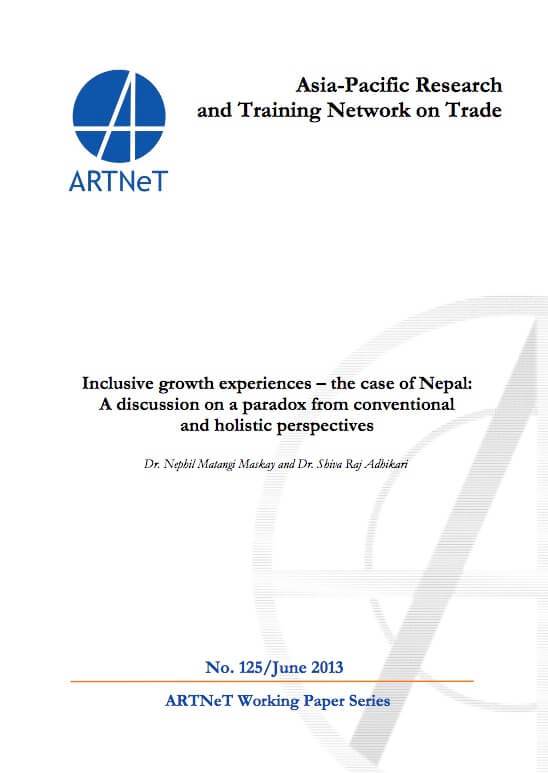Inclusive growth experiences – the case of Nepal: A discussion on a paradox from conventional and holistic perspectives

Country insights vary according to analyses of their inclusive growth (IG) experiences. Looking at the trends in stylized facts of Nepal, a land-locked, least developing country in South Asia, is at first glance paradoxical. That is, Nepal experienced a costly domestic insurgency situation from the early 1990s. This, however, was accompanied by a sharply decreasing trend in poverty headcount rate from 41.8% in 1996 to 30.9% in 2004 and 25.2% in 2011. This result is attributed to labour migration and a sharp growth in the remittances-togross domestic product (GDP) ratio; in 2011/12 it was about 23%. The conventional IG explanation highlights the contribution of remittances to household income and poverty reduction. However, households are spending remittances largely on consumer activities; therefore, this situation is labeled as “short-term” IG. Using a broader and holistic systemwide perspective suggests that there are both intended (positive/negative externalities) and unforeseen consequences. The unforeseen consequences are the societal changes as well as positive externalities of remittances in Nepal, which have facilitated an increase in access to services. The latter perspective changes the analysis and reverses the priority of policy recommendations, thus providing a cautionary note to policymakers in formulating policy prescriptions.
